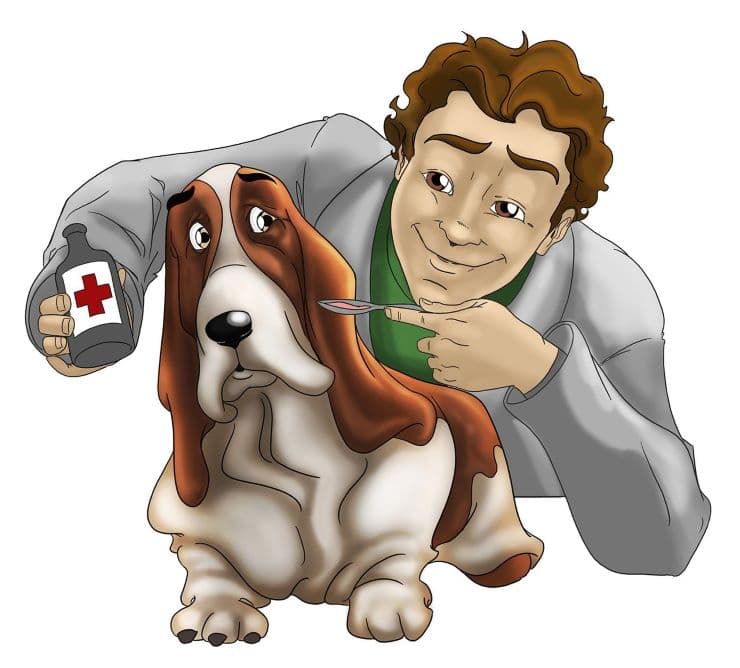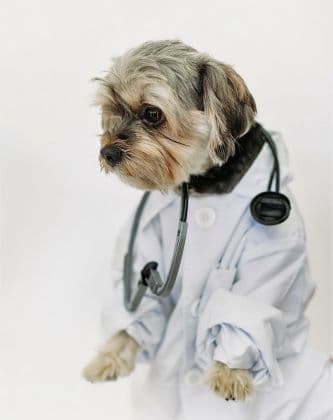Maintaining the contentment and health of your cherished pet is a significant responsibility that comes with pet ownership. To ensure this occurs, you should give them the attention they need, including constant access to food and clean water. Similarly, you must provide them with regular exercise and mental stimulation via play and interactive toys. Maintaining their grooming needs, such as hair combing and nail trimming, are also crucial.
Further, bring them in for regular veterinary checks, including mobile vet care such as in-home pet vet care in Aurora, CO, so the doctor can identify potential health issues early. Ultimately, be kind and caring to your pet—they will appreciate it! Considering these simple steps, your pet is guaranteed a healthy and long life.

Photo Credit: andremsantana/Pixabay
Finding the best vet for your pet
There are a few important considerations while deciding on the best physician for your pet. Before proceeding, you must verify that the veterinarian is licensed and has experience treating animals like your companion. Obtain referrals from friends or relatives who own dogs by asking around or looking for internet evaluations of nearby veterinarians. Schedule meetings with the shortlisted vets so you may learn more about their services.
Significantly, your pet deserves a veterinarian who is kind, well-informed, and willing to answer your questions. It would be best for you to Inquire more about their emergency protocols in case of unexpected sickness or injury. Following these procedures, ensure your cherished pet receives the greatest care.
Common pet health problems and their solutions
Since the most common pet health issues may range in severity from mild to severe, it's important to be aware of them. Veterinarians often advise pet owners to closely monitor their pet's nutrition, exercise regimen, and general way of living, thus making sure your pet receives all the food it needs.
On the other hand, a nutritious diet is crucial for a pet while exercise is essential for your pet to remain healthy and vibrant. Under the same, regular walks or playtime for your pet can help keep them healthy and lower their risk of obesity-related illnesses. The best way to guarantee that any potential health issues are dealt with immediately is to get regular veterinarian examinations.
On the other hand, vaccinations are also essential for preventing diseases like rabies and distemper. Ultimately, be aware of any illness-related signs in your pet, such as throwing up, diarrhea, wheezing, or strange behavior, and Consult your veterinarian right away for advice on handling any of these symptoms if they come up.
Vaccinations, regular checkups, and dental hygiene

Asking inquiries about diet, behavior, and other facets of pet care at this time is also a terrific idea. Dental hygiene is the last component of dog preventive care, and Pets should get their teeth cleaned at least once a year by a professional since poor dental health may lead to serious health problems. Following these guidelines guarantees that your pet stays healthy and happy for many years.
What to feed your furry friend
The most crucial aspect of pet nutrition is giving your animal the vital nutrients required to maintain optimum health and well-being. For additional information on your pet's ideal diet, depending on their age, species, and lifestyle, speak with your veterinarian.
A healthy meal should typically include water, vitamins, minerals, carbs, fats, and proteins. Ensure you feed your pet premium food tailored to their species and age group. It would be best if you understood that dogs shouldn't be fed table scraps or human food since they might be unhealthy or contain dangerous ingredients.
Dog Treats
Dog owners value bully sticks as natural, single-ingredient, and high-protein treats made from bull pizzle. Unlike cooked bones, these treats don't splinter. These treats contribute to dental health, are long-lasting, and are low in fat. Choose a brand of bull sticks derived from natural protein sources.
Plain Broth
Additionally, you can feed plain and pet-safe broth to dogs and cats as a nutritious and flavorful addition to their diet. When offering broth, ensure it is homemade without harmful ingredients or choose low-sodium store-bought options. Avoid additives like onions and garlic, and serve it at a safe temperature.
Human Foods
Pet owners sometimes mistakenly give their furry friends human foods that can harm them. Chocolate has theobromine and caffeine, which are toxic to dogs. Dark chocolate is particularly dangerous. Allium plants, such as onions and garlic, can damage red blood cells, causing anemia. Cats are more sensitive than dogs to these substances.
Dairy, High-fat foods and Cooked bones
Many adult dogs and cats are lactose intolerant, lacking the enzyme to digest lactose properly. Feeding dairy can lead to digestive upset. High-fat foods can lead to pancreatitis in pets. Symptoms include vomiting, diarrhea, and abdominal pain.
Furthermore, cooked bones can splinter and cause internal injuries or blockages in a pet's digestive tract. It's safer to offer raw, meaty bones under supervision.
Finally
Pay careful consideration to the quantity offered as well since feeding a dog too much may lead to being overweight, which can lead to several health issues in dogs. Also, provide your pet with enough clean water to drink.
You May Also Like:
- Exploring Therapy Options for Pets
- What Puppy Shots Would You Recommend?
- How To Make My Samoyed's Fleas Go Away?
- How to Create a Separate Room for Your Dog In Your Home
Leave a Reply